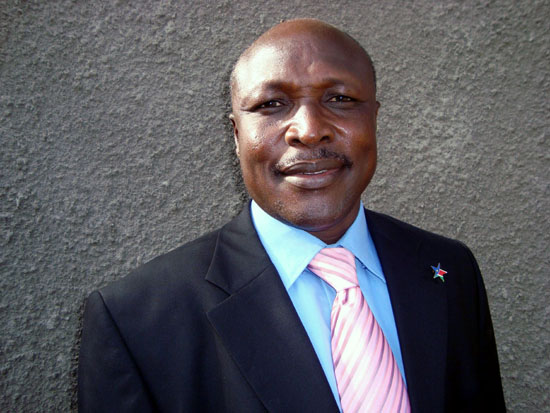Eastern Equatoria State has been grappling with inter-communal violence, cyclic revenge killings, highway robberies, and crime for the last several months. Radio Tamazuj caught up with and sounded out the state’s Governor Louis Lobong Lojore, about the state of affairs there.
Below are edited excerpts:
Q: What is the situation in your state as people approach the Christmas season?
A: All are well and are ready to celebrate Christmas. We could see people busy with the preparations, with painting, washing and some are traveling to nearby villages. So, this is the situation here and things are okay.
Q: Talking about people traveling outside Torit, in recent days there were some reports about insecurity in Torit town, how is the situation?
A: Yes, a few weeks ago, there was an incident about the killing of a national security officer, who was shot and killed and the investigations are underway to know the culprits and the motive behind it. What we know is that it was a revenge attack. As you know, some of our local tribes here are still practicing the habit of revenge attacks. If their relative is killed, even in the village, they will look for anybody from there and kill as well as an act of revenge.
Q: What about people who will be traveling to different villages such as Kapoeta, Lafon, Ikotos, and others. Are there any plans of providing them with security along the way during this season?
A: Yes, people are traveling normally to Kapoeta, to Chukudum, despite the rough road but security-wise things are good. We know that there are isolated incidents that happen. Some criminals are robbing people along the roads, they want to steal and run away, but it happens maybe once a month or twice. But we have secured all these locations. Now, from Juba to Torit you take only one hour and a half, and from Torit, to Kapoeta you take only two hours. So the road now is good.
Q: There have also been reports of renewed fighting in Hiyalla. Can you update us on this?
A: For all this period, this is the only place that has been giving us a headache and spoiling the name of our state. They had a series of reconciliations and have signed a peace deal. Over a week ago, we sent them a state committee and they have arrived on the ground and are engaging community leaders in talks.
Q: Have you managed to arrest some of those individuals or groups who are involved in cattle raiding in the area?
A: Some of them have been arrested and some of them are not cooperating with the government and they stay in the bush and are armed. So, we know them by names but it is not easy to arrest them.
Q: What about prices in the market? Are people able to access markets and get goods for their families?
A: Prices are now high in the market due to inflation and as you know during the Christmas season traders increase prices in the market. For those who can afford that is good, for those who cannot do so, there is nothing we can do.
Q: Have you paid your civil servants ahead of Christmas?
A: We managed to pay our employees only one month's salaries in June, but soon they will receive another one month for July.
Q: Hon. governor, how is the situation of the returnees who came back from neighboring Ethiopia? Have they got any humanitarian aid?
A: Yeah, these people are there, and sometimes it is very difficult to access them. But a few months ago, the WPF took some food rations and gave them. Kapoeta was affected by the past floods and the heavy rains have affected crops.
Q: What about the situation around the Parajok area along the Ugandan border, how is the situation there after the recent incident?
A: The problem has been resolved after the meeting of the two army chiefs of South Sudan and Uganda, so they have put an end to this problem. As we speak, citizens of the two countries along the border are co-existing without any problem.
Q: Do you have any final message to your citizens and South Sudanese at large?
A: First of all, I would like to thank God for his protection for all this period. I would also like to give my regards to President Salva Kiir Mayardit and the people of South Sudan, including citizens of Eastern Equatoria. I wish them all a Merry Christmas as they celebrate the festive season safely. Let them celebrate with love and peace. They should reduce the level of alcohol consumption; it is one of the causes of problems among our people.
To our youth, they should know that schools are reopening in January and whatever resources they have they should not waste them all but instead keep some for schools.
My message also goes to our citizens, especially those tribes who are staying along the roads, they should work to protect the road for travelers who are going to celebrate with their relatives. Our wish is that the New Year will bring us a lot of service provision and achieve lasting peace.
Q: Before we end this interview, do you mind sharing with us some of the challenges facing your state?
A: Well, like all the other states, I am alone as the governor and the cabinet has not been formed. Alone, you cannot take serious decisions, you cannot initiate projects that can attract projects. No committee can study and approve. We also face the issue of insecurity, a governor alone without local commissioners cannot do much.
We also face a challenge about the delay in the pay and we cannot implement some of the security operations without money.




